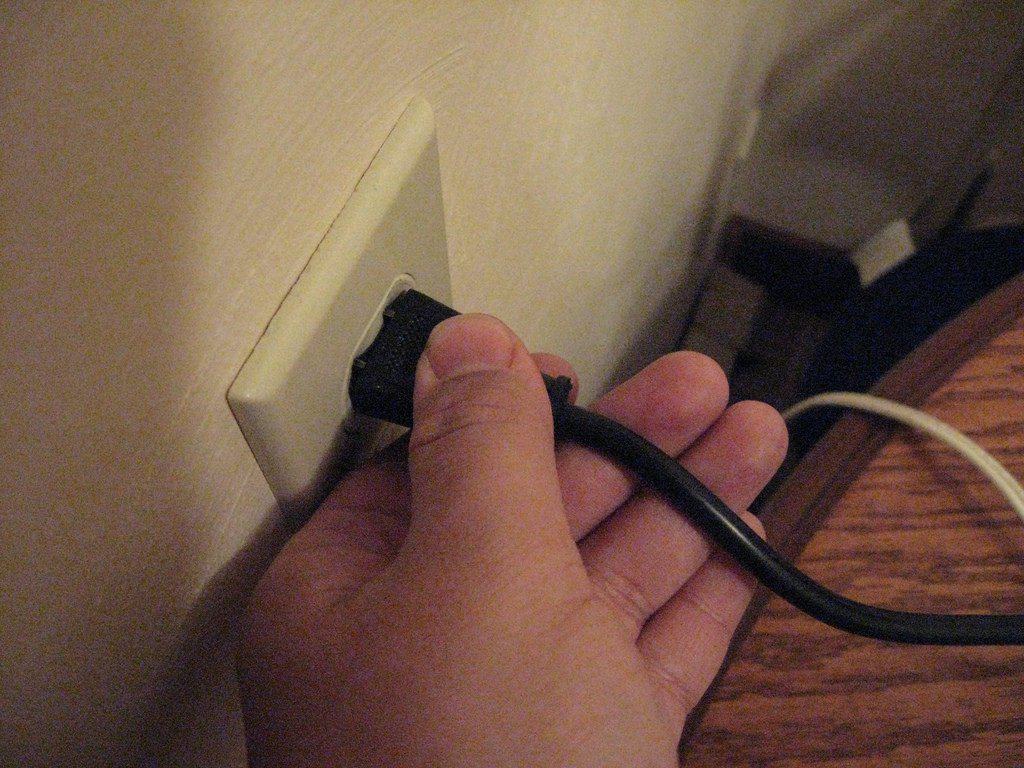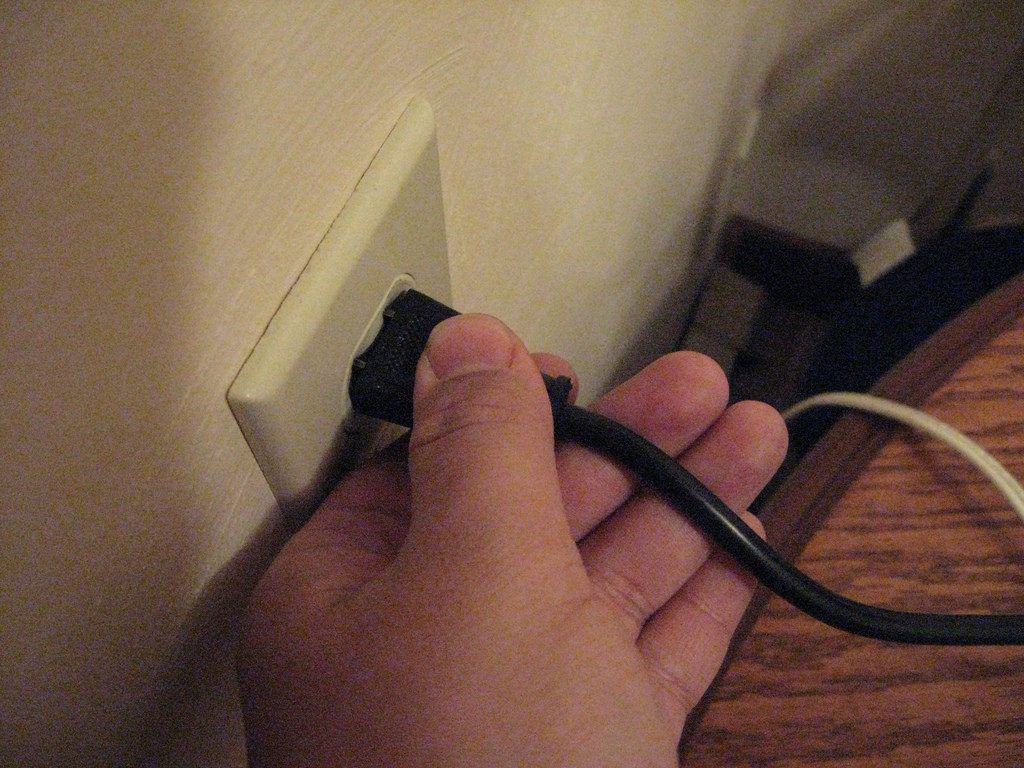
Photo credit: functoruser unplugging the machine via photopin (license)
In a world where our lives revolve around technology, it is difficult to completely separate ourselves from these devices, even when we know we are supposed to be on vacation. The issue here is that you NEED a break. Staying constantly connected to the office during your vacation will diminish the relaxing aspect of a vacation.
If there is one important lesson attorneys need to learn, it is how to find a work/life balance. Statistics from the United States Department of Labor show that most attorneys work more than 40 hours per week, especially if they are in private practice, or work with a large firm.
Understandably, if there is work to do, you get it done. But I’d imagine that by now you’ve earned yourself a nice break from the constant stresses of the office and needy clients. So why not take full advantage of your time away? If you are worried about what’s happening back at the office or constantly checking your emails, then that really isn’t a vacation. The following tips will help you maximize your vacation time by disconnecting from the office.
Plan Ahead
The key to having the opportunity to completely disconnect, is to plan ahead for your trips. This doesn’t mean plan your hotels, sightseeing adventures, or where you’re going to eat. That’s the fun planning. The planning you need to emphasize is planning for your leave of absence at work.
Staying on top of your workload and staying organized will be crucial for this planning to be successful. If you understand exactly what needs to be done then you know exactly how to plan. This may include letting clients know that you will be out of the office and to get any requests in beforehand so they can be addressed before you leave. You may need to put in extra hours the weeks or days before your trip, but this extra effort will be 100% worth it when you are able to completely disconnect on your vacation.
Delegate Pressing Matters
If you are unable to plan a vacation over a time where no major projects are due, no worries, you can still have your vacation and meet your deadlines. In most jobs, there is someone who can help you with your work while you are gone. Now this does not mean you can simply dump your projects on that coworker and leave.
If there are small details to be verified, or issues that are not overly burdensome, ask a coworker to keep an eye on it for you. The worst that can happen is that they say no, then you ask a different coworker.
It is also helpful to designate an exact person to field your pressing matters. This can be done by letting the receptionist know all emergencies are sent to that coworker, or your out of office email response can give their contact information for emergencies.
As hard as it may be to trust someone else with your tasks, you will be thankful you have someone looking out for you while you’re gone.
Focus on the Benefits
Taking a vacation is not just to get away from work; it’s to reenergize your life. We spend the majority of our week working, so it is critical to mental and physical health to take a break from the stresses of work. According to the health provider, Health Net, taking a vacation can not only decrease risk of heart disease, depression, and stress, it is also proven to increase productivity. Although it may seem impossible to disconnect, the long-term benefits for you and your company outweigh the need to be connected 24/7 on vacation.
Stop Worrying
While we’d all like to think that our office would be in utter chaos in our absence, the reality is that they will manage just fine without you. This doesn’t mean that you are unnecessary or obsolete, this should be a direct reflection of your planning ahead and leaving every project in a good place. If you plan ahead well enough, your work will be just fine without you. If you are worrying about what is happening at the office all the time then you will not be relaxing or enjoying your vacation in the way that you should.
Stop worrying and just enjoy your vacation.
Cut the Cord
To be completely free of work, you must be willing to cut the cord. Personal Injury attorney Jared Everton has said, “If you leave the door open to be available on vacation, you give the chance for emails or calls any time of day or night. This is not a beneficial plan if you are truly trying to disconnect.” Leaving your computer or phone in the hotel room is ideal because then you are not even tempted to check what’s happening back at the office.
If you feel like you can’t completely set work aside while you’re away, set solid boundaries for yourself and your coworkers. This can entail having a designated time each day that they are free to call or email, only checking emails after you’ve done a fun activity, changing the alert settings on your phone, or any plan that will allow you to still enjoy your vacation.
Banish technology and embrace free time
Leaving work behind is a difficult thing to do considering it is your main focus at least 40 hours per week. However, a mental and physical break from the stressors at work will benefit you and your company in the long run. Remember that it is up to you to plan ahead and set the boundaries ahead of time. No one is going to force you to take a vacation and fully disconnect from work; this is up to you to do for yourself.



